Scientific program, June 29th 2015
Epigenetics in health and disease
13:30
Registration - Conference area
13:45
Opening remarks
14:00
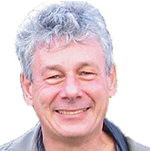
Philip Avner
EMBL, Monterotondo, Italy
Changing Certitudes in X-inactivation
PhD in yeast genetics, University of Warwick.
CNRS Director of Research.
Head of the Mouse Molecular Genetics Unit at the Institut Pasteur 1990-2011.
Head of the Developmental Biology Department at the Institut Pasteur 2006-2011.
Head of EMBL Monterotondo since 2012.
14:25
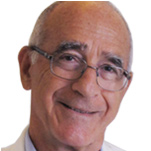
Francesco Blasi
IFOM, Milan, Italy
Homeodomain protein Prep1. A new regulator of DNA replication
MD from Naples University Medical School, then two post-Docs at the Max Planck Institut fuer Biophysik (Frankfurt, Germany) and NIH (National Institute of Arthritis and Metabolic Diseases) Bethesda, MD (U.S.A.). In 1970 back in Italy at the CNR Research Center in the Naples University Medical School, then in 1980 Full Professor at the II Faculty of Medicine of the University of Naples. Subsequently, Professor at the University of Copenhagen, Denmark and finally in Milano since 1992. Is at IFOM since 2004, Director of research program Transcriptional Regulation in Development and Cancer. From 2007 to 2011 coordinates the Molecular Oncology PhD program of SEMM. In 2011 becomes Deputy Director for Science of IFOM. Has previously been Director of the International Institute of Genetics and Biophysics of CNR in Naples (1980-1983), of the Molecular and Cellular Biology Center in Copenhagen (Denmark), (1988- 1992), and of the Department of Cellular Biology and Functional Genomics (1998-2006) at DIBIT, Ospedale San Raffaele. In 1979 is elected member of EMBO, the prestigious European Molecular Biology Organization, and 1991-1993 of its Council. Since 1992 is a member of Academia Europaea. Has received national and international prizes and is Author of over 270 research articles in prestigious international Journals, including Nature and Cell. Has been a member of the Advisory Board of AIRC, Associazione Italiana per la Ricerca sul Cancro, and of the Board of EMBO Journal.
14:45
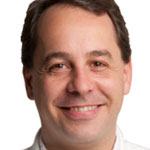
Stefano Casola
IFOM, Milan, Italy
B cell epigenetics: at the crossroad between immunity and lymphomagenesis
Stefano Casola is a group leader at IFOM, Milan, Italy. He obtained his Medical Degree in 1993 and PhD degree in 1999 from the University of Naples Federico II, Naples, Italy. Following his post-doctoral training at the Institute of Genetics, University of Cologne, Germany, he moved to Harvard Medical School where he became Instructor and Junior Investigator at the Center for Blood Research, under the mentorship of Klaus Rajewsky. Since 2006 he has led in IFOM a research unit focused on understanding the molecular mechanism of B-cell development and lymphomagenesis. Stefano Casola is a recipient of the Giovanni Armenise/Harvard Career Development Award.
15:05
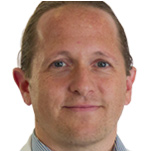
Svend Petersen-Mahrt
IFOM, Milan, Italy
DNA Repair Pathway Choice: Balancing between Repair and Mutation in Immunity and Cancer
Prior to becoming the head of the DNA Editing in Immunity and Epigenetics Unit at the IFOM, Dr. Svend Petersen-Mahrt headed-up the DNA-Editing lab at Cancer Research UK. The work in his laboratory focuses on the notion that DNA instability - usually associated with cancer - provides an advantage to an organism. His lab analyses a novel family of enzymes - DNA deaminases - that mutate our genomes over a billion times a day. The interest in understanding targeted DNA mutations as a driving force in evolution has infected Dr. Petersen-Mahrt since his PhD training in the USA, and continued throughout his post-doctoral training at the BMC in Uppsala Sweden and the MRC-LMB, in the UK. His recent discovery in how DNA deaminases are regulated may have provided the answer to how estrogen causes cancer. While his biochemical approach in studying DNA lesion resolution has lead to the development on novel in vitro tools, with the first in vitro DNA demethylation assay being a stepping stone in understanding epigenetic reprogramming.
15:25
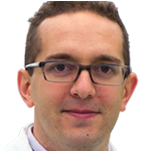
Francesco Ferrari
IFOM, Milan, Italy
Chromatin architecture and transcription dynamics
Francesco Ferrari obtained his PhD in Biotechnology and Molecular Medicine in 2008 from the University of Modena and Reggio Emilia.
He then specialized in computational biology and genomics.
After a first postdoc at the University of Padova, he joined the group of Peter J. Park at Harvard Medical School where he worked on the use of high-throughput sequencing techniques to study chromatin and transcription dynamics in different experimental models.
In 2015 he joined IFOM as group leader of the “Computational Genomics Laboratory”. His laboratory is particularly focused on understanding the role of chromatin organization and epigenetics in regulating gene expression, and how these mechanisms are altered in cancer.
15:45
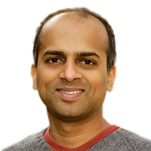
Ramesh Pillai
EMBL, Grenoble, France
Genome defense by germline small RNAs
PhD 2002, University of Bern.
Postdoctoral research at the Friedrich Miescher Institute, Basel.
Group Leader at EMBL Grenoble since 2006.
ERC Investigator.
16:10
Coffee break
Cell cycle and genome integrity
16:45
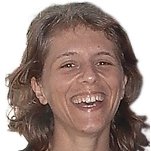
Sara Buonomo
EMBL, Monterotondo, Italy
The late identity
DNA replication and genome stability
The creation of two identical copies of the genome is the defining event of life, essential for cell division. This process takes place during Synthesis-phase of the cell cycle. DNA replication is a very stressful event, as mistakes can lead to mutations and any obstacle on the way of the replication machinery could cause irreparable damage. Problems during DNA replication are the most frequent initiating events in cancer development. To control the fidelity of this process cells have evolved checkpoint mechanisms. Moreover, DNA replication itself is highly organized, both spatially and temporally inside the nucleus. While the function of numerous proteins has been elucidated in the monitoring of replication and in the signaling of arising problems, very little is known about the factors involved in the spatio-temporal organization of the DNA replication process.
17:10
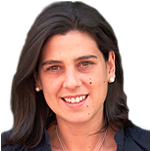
Rocio Sotillo
EMBL, Monterotondo, Italy
Consequences of Mad2 overexpression on early tumorigenesis
PhD 2002, Autónoma University (Madrid) and Spanish Nitional Cancer Center (CNIO), Spain.
Postdoctoral work at Memorial Sloan Kettering Cancer Center, New York, USA.
At EMBL since September 2010.
ECR investigator since 2011.
HHMI International Early Career Scientist.
17:35
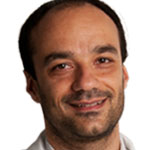
Andrea Ciliberto
IFOM, Milan, Italy
Waiting for chromosome segregation: adaptation to the spindle assembly
Andrea Ciliberto obtained his PhD in Genetics in 2000 from the University of Florence, working on a combination of experiments and mathematical models of the early development of the sea urchin embryo. He then specialized in modeling molecular regulatory networks with John Tyson and Bela Novak, at Virginia Tech and in the Institute of Advanced Sutides Collegium Budapest. Since 2005 he has been group leader of the 'Quantitative biology of cell division' lab in IFOM. His laboratory is particularly interested in understanding with quantitative tools the mechanisms of chromosome segregation.
17:55
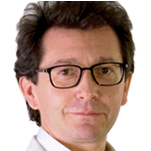
Fabrizio d'Adda di Fagagna
IFOM, Milan, Italy
An evolutionary conserved role for Notch in DNA damage response
Fabrizio d'Adda di Fagagna obtained his PhD at the International School for Advanced Studies (ISAS-SISSA) in Trieste, Italy. He was then postdoc and Research Associate in Steve Jackson's group at the Gurdon Institute of the University of Cambridge, UK. He is now a tenured Principal Investigator at IFOM Foundation in Milan, Italy and a group leader at the Institute of Molecular Genetics (IGM) of the National Research Council in Pavia, Italy. In 2012 he was nominated an EMBO member.
18:15
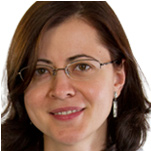
Dana Branzei
IFOM, Milan,Italy
Late chromosome replication functions of Smc5/6 that uphold genome integrity
Dana Branzei studied at Tohoku University, Sendai, Japan, where she obtained her PhD in Molecular Biology in T. Enomoto's laboratory. During her postdoctoral studies in K. Ohta's laboratory at RIKEN, Wako, Japan, she continued her work, with emphasis on small ubiquitin-related modifier (SUMO) and ubiquitin-mediated regulatory mechanisms controlling chromosome replication and recombination. In 2005, she moved to IFOM, Milan, Italy, as staff scientist, working on the mechanisms controlling intra-S phase DNA repair. From 2008, she became head of the DNA repair laboratory at IFOM. Her laboratory studies the mechanisms of DNA damage response and tolerance pathways and the impact that the chromatin structure/architecture and DNA topology have on the mechanism of DNA repair.
18:35
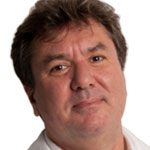
Marco Foiani
IFOM, Milan,Italy
ATR-mediated control of nuclear plasticity
Marco Foiani is the Scientific Director and Head of the Genome Integrity Laboratory of IFOM– and co-founder of the IFOM-IEO Campus. He was the founder and vice-president of the European Nanomedicine Foundation (CEN). He is also member of the Scientific Advisory Board of AIRC, the Italian Cancer Research Association. Since 2002 he has been full professor in Molecular Biology at the University of Milan and professor at the European School of Molecular Medicine (SEMM). He is also a member of the editorial board of Cell and editor and reviewer for scientific journals with top impact factors. He was honored with internationally recognized memberships and awards, such as: the EMBO membership; the Academia Europaea membership; the New York Academy of Sciences membership; the Italian Society of Genetics (AGI) membership; the Italian Society of Biophisics and Molecular Biology (SIBBM) membership and award; the Biotec award; the Chiara D'Onofrio prize. Marco Foiani has a PhD in Molecular Biology from the University of Milan. His research interest focuses on the regulatory mechanisms that control genome integrity. He has more than 90 papers published in international scientific journals.
